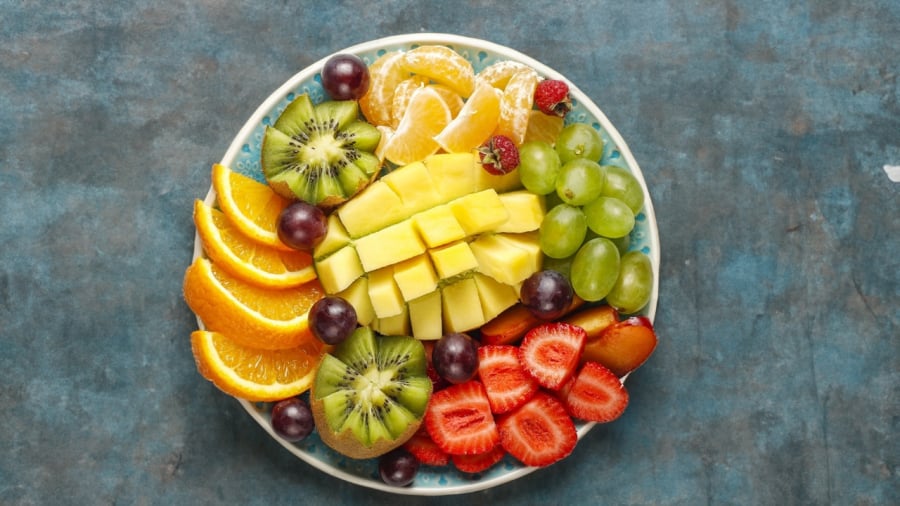Fruits are easy-to-eat, easily digestible foods that are often used as desserts after main meals. Eating fruits helps to supplement the body with essential vitamins, minerals, and fiber. However, eating fruits immediately after a meal can cause concerns about weight gain. So, does using fruits as desserts after main meals really make you gain weight? Let’s find out.
In terms of nutrition, there is no best type of fruit. Each type has its own taste and value. The choice of which fruits to eat depends on the conditions and preferences of each person. Experts always advise people to eat a variety of fruits. For those with specific medical conditions, they can consult with a doctor to choose the suitable type of fruit that does not affect the healing process.

Dr. Nguyen Trong Hung – Head of the Department of Adult Nutrition Consultation (National Institute of Nutrition) shares that there is no ideal time to eat fruits, whether before or after a meal. Some people use fruits mixed with milk, nuts, etc. as breakfast. Fruits are also used as desserts after meals. The timing of fruit consumption depends on each person’s physique and preferences. Fruits can be eaten at any meal. However, people with stomach diseases should avoid consuming fruits with sour taste before meals.
For those on a diet, eating a small amount of fruits or vegetables before a meal helps to fill the stomach, thereby limiting the consumption of high-protein and high-fat foods. Combining this with other healthy lifestyles will help achieve more effective weight loss.
In addition, doctors advise against replacing vegetables with fruits or using fruits as a substitute for meals to lose weight. The body needs energy to function and requires sufficient nutrients to nourish cells. Eliminating food groups such as starch, protein, and fat from the daily diet can be harmful to health. It can even make it difficult to lose weight and cause feelings of fatigue. Improper fruit consumption can lead to weight gain because many fruits have a high sugar content, and the more you eat, the more calories you consume. Consuming fruits in this manner along with snacking and eating other foods will result in a large total calorie intake for the body.

The World Health Organization recommends that adults should eat 400-500 grams of green vegetables and ripe fruits per day. The reasonable amount of ripe fruits can range from 100-200 grams per day.
Choosing fruits wisely also helps you receive the necessary nutrition and avoid weight gain.
It is not advisable to consume a large amount of fruits at once and instead, it can be divided into small meals throughout the day. It is not necessary to eat fruits before or after main meals. Additionally, avoid eating fruits in the evening, close to bedtime, as it can make digestion difficult and lead to additional energy storage.
What You Need to Know About Chocolate
Despite its tasty flavor, there are long-standing concerns that eating too much chocolate may lead to weight gain and tooth decay. Despite this, chocolate continues to be a popular indulgence during holidays and a meaningful gift to share with loved ones. It is also a popular ingredient for beauty treatments.



































